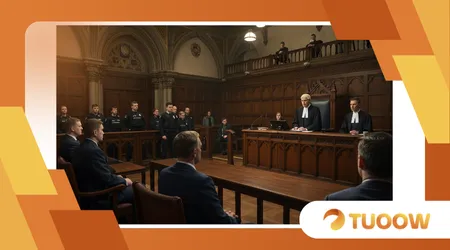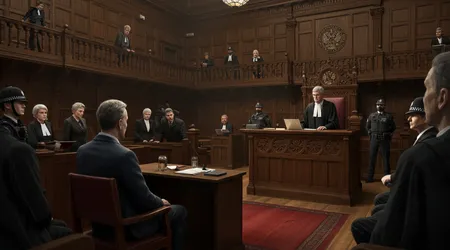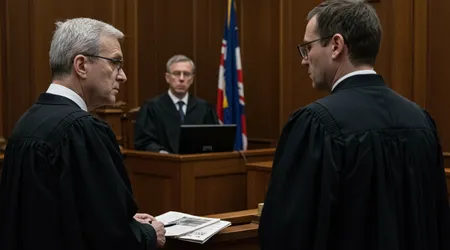Russian Spy Ring Leader Sentenced: What the Verdict Means for UK Security

Russian spy ring leader sentenced to nearly 11 years in a British court this week, shaking the foundations of UK national security.
The case, involving six Bulgarian nationals operating under Kremlin directives, exposes vulnerabilities in Britain’s defenses against covert foreign operations.
This article delves into the case’s intricacies, its ripple effects on UK-Russia relations, and what it signals for future security measures.
Why does this verdict matter? It’s a stark reminder that espionage, often romanticized in fiction, remains a tangible threat in 2025.
From a Norfolk guesthouse to sophisticated surveillance across Europe, the operation’s scale demands scrutiny.
We’ll unpack the verdict’s implications, blending expert insights, real-time data, and practical examples to illuminate the stakes for Britain’s safety.
The Case: A Spy Ring Unraveled
A British court convicted Orlin Roussev, 47, the Russian spy ring leader sentenced for orchestrating espionage on an industrial scale.
Operating from Great Yarmouth, Roussev’s cell targeted journalists, dissidents, and Ukrainian soldiers. Their methods?
Hidden cameras, fake IDs, and honeytraps, straight out of a Cold War playbook. The group, dubbed “The Minions” after the animated franchise, wasn’t joking.
They conducted six sophisticated operations, compromising sensitive targets across Europe.
The investigation, a masterclass in counter-terrorism, sifted through 200,000 messages to expose the network.
Roussev’s guilty plea followed damning evidence linking him to Jan Marsalek, a fugitive Wirecard executive acting as a Kremlin intermediary.
This wasn’t amateur hour; it was a well-funded, calculated assault on Western security. The court’s verdict underscores the UK’s resolve to confront such threats head-on.
++ Live Updates: Key Political Developments Shaping Today’s Headlines
Prosecutors revealed the group’s audacity: they even attended a Brexit event in Parliament. This breach raises questions about vulnerabilities in high-security venues.
The Metropolitan Police’s Dominic Murphy praised the investigation’s rigor, noting it left the spies no choice but to plead guilty.
The case’s exposure is a triumph, but it also highlights gaps that allowed such a cell to operate undetected for years.

Sentences and Their Message
The Russian spy ring leader sentenced to 10 years and eight months sends a clear signal: espionage won’t be tolerated.
His five accomplices Biser Dzhambazov, Katrin Ivanova, Vanya Gaberova, Tihomir Ivanchev, and Ivan Stoyanov received a combined 40 years.
Also read: UK Parliament Probes Skilled Worker Visa Policy and Sector Impacts
Sentences ranged from six to nearly ten years, reflecting their roles in the conspiracy.
Judge Nicholas Hilliard emphasized the group’s financial motivations, noting their comfortable lifestyles funded by Russian payments.
| Defendant | Sentence | Role |
|---|---|---|
| Orlin Roussev | 10 years, 8 months | Ringleader |
| Biser Dzhambazov | 10 years, 2 months | Primary lieutenant |
| Katrin Ivanova | 9 years, 8 months | Surveillance operative |
| Vanya Gaberova | 8 years | Surveillance, honeytrap plot |
| Tihomir Ivanchev | 8 years | Surveillance operative |
| Ivan Stoyanov | 6 years, 4 months | Support operative |
The sentences, handed down on May 12, 2025, aim to deter future espionage. Security Minister Dan Jarvis called them a “clear warning” to hostile actors.
Yet, the varying lengths reflect nuanced culpability Gaberova’s defense, for instance, claimed coercion by Dzhambazov, her lover.
This human element complicates the narrative, showing espionage as both calculated and messy.
The public nature of the sentencing, broadcast live from the Old Bailey, amplified its impact. It wasn’t just about punishing the guilty; it was about projecting strength.
Read more: UK Parliament Holds Final Vote on Major Data Regulation Reform Bill
The UK’s message? We’re watching, and we’ll act decisively. But the case also prompts reflection: how many other cells operate in the shadows, undetected?
Implications for UK National Security
The Russian spy ring leader sentenced exposes cracks in Britain’s security armor. The group’s ability to operate for nearly three years undetected is alarming.
Their targets journalists like Christo Grozev, who exposed Russia’s role in the 2018 Salisbury poisonings show the Kremlin’s intent to silence critics abroad.
This case isn’t isolated; it’s part of a broader Russian strategy to destabilize the West.
Consider this analogy: national security is like a fortress. The spy ring didn’t breach the gates; they slipped through hidden tunnels.
Closing those tunnels requires more than convictions it demands systemic reform. The UK’s counter-espionage framework, while robust, needs bolstering.
MI5’s 2024 annual report noted a 48% rise in state-sponsored espionage cases since 2020, a statistic that underscores the growing threat.
The case also highlights the role of technology in modern spying. The group’s use of concealed cameras and encrypted messaging apps shows how espionage has evolved.
Countering this requires investment in cyber-intelligence and cross-border cooperation.
The UK’s National Security Act 2023, which expands powers to tackle foreign interference, is a step forward, but implementation lags. Can Britain keep pace with these shadowy threats?
UK-Russia Relations: A New Chill
The Russian spy ring leader sentenced further strains an already frosty UK-Russia relationship. Diplomatic ties, frayed since the 2018 Skripal poisoning, face new pressure.
Russia’s 2025 Victory Day celebrations, attended by China’s Xi Jinping, signaled Moscow’s defiance against Western sanctions.
This spy case adds fuel to the fire, reinforcing perceptions of Russia as a relentless adversary.
Example: Imagine a British diplomat in Moscow, already navigating a minefield of Kremlin propaganda.
This verdict gives them leverage to demand accountability but risks retaliation perhaps expulsions of UK diplomats.
The tit-for-tat cycle deepens mistrust. The UK’s Foreign Office must balance firmness with pragmatism to avoid escalating tensions unnecessarily.
Historically, espionage scandals prompt reciprocal actions. After the Skripal incident, 23 Russian diplomats were expelled from London.
A similar response could follow, but the UK must weigh the costs. Russia’s war in Ukraine, now in its fourth year, complicates matters any misstep could embolden Putin’s regime.
The verdict, while just, places Britain on a diplomatic tightrope.
Public Perception and Trust

The Russian spy ring leader sentenced captivates public imagination, evoking spy thrillers. But beyond the drama, it erodes trust in institutions.
If spies infiltrated Parliament, what else have they accessed? Public skepticism, already high post-Brexit, could deepen.
The government must restore confidence through transparency and action.
Example: A Londoner reading about the case might wonder if their local MP’s office is secure. This fear, while speculative, fuels distrust.
The government’s response public sentencing, ministerial statements aims to reassure, but words alone won’t suffice.
Investments in community-level security, like better vetting for public events, could bridge the gap.
Media coverage amplifies the stakes. Outlets like the BBC and The Guardian have dissected the case, emphasizing its “spy novel” elements.
While engaging, this risks sensationalism. Responsible reporting, balancing intrigue with facts, is crucial to maintain public trust.
The verdict’s real impact lies in whether citizens feel safer or more exposed.
Looking Ahead: Strengthening Defenses
The Russian spy ring leader sentenced is a wake-up call for the UK to fortify its defenses. First, enhance MI5’s resources budget cuts since 2010 have strained operations.
Second, deepen alliances with Five Eyes partners to share intelligence on Russian activities. Third, educate the public about espionage risks, turning citizens into vigilant allies.
The National Cyber Security Centre’s 2025 report warns of increasing Russian cyber-espionage. This case, though analog in methods, signals a hybrid threat physical and digital.
Training law enforcement to spot covert operations, from fake IDs to encrypted chats, is critical. The UK can’t afford complacency when adversaries adapt so swiftly.
Finally, deportation looms for the convicted spies post-sentence. This raises questions about Bulgaria’s role as a hub for Russian operatives.
Strengthening EU partnerships to monitor such networks is vital. The verdict closes one chapter, but the broader story of UK security demands constant vigilance. What will it take to stay one step ahead?
Conclusion: A Verdict Beyond the Courtroom
The Russian spy ring leader sentenced marks a pivotal moment for UK security. It’s not just about 11 years in prison or 40 years for accomplices it’s about a nation grappling with invisible threats.
From Norfolk to Westminster, this case reveals how espionage infiltrates everyday life. The UK’s response, blending judicial resolve, diplomatic nuance, and security reform, will shape its resilience.
This verdict isn’t the end; it’s a call to action. Britain must fortify its defenses, rebuild trust, and confront Russia’s shadow war with clarity and courage. The stakes?
Nothing less than the safety of a nation in an era of unrelenting covert battles.
Frequently Asked Questions
What was the Russian spy ring’s main objective?
The group aimed to gather intelligence on Kremlin critics, including journalists and dissidents, to support Russia’s geopolitical agenda.
How can the UK prevent future espionage?
By boosting MI5 funding, enhancing cyber-intelligence, and fostering public awareness, the UK can better detect and deter covert operations.
